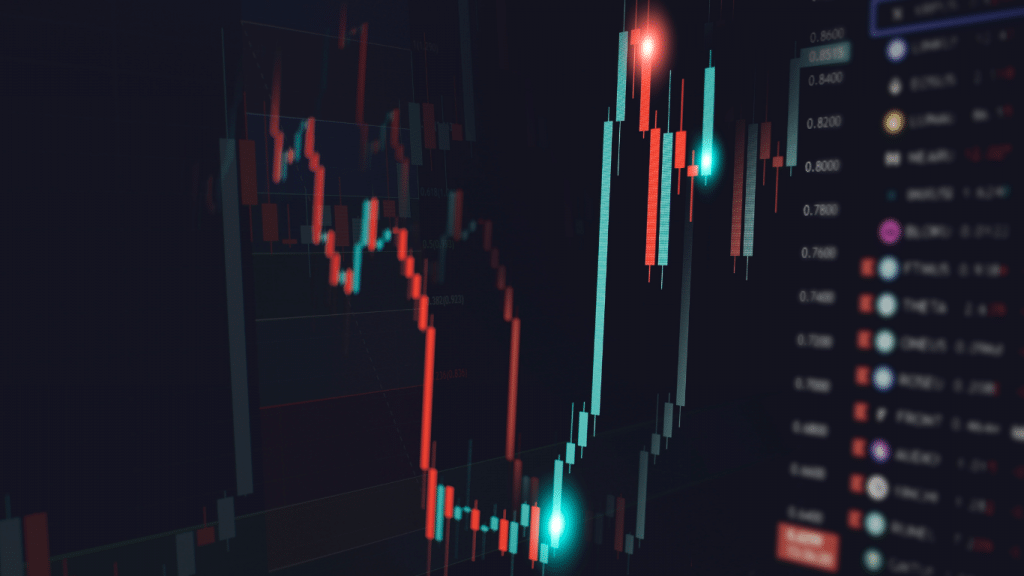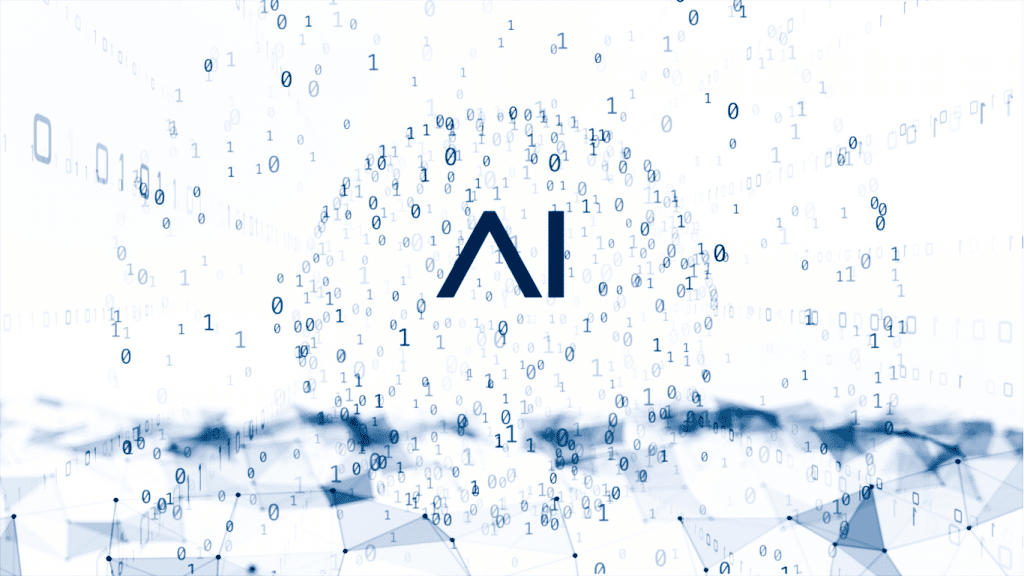
AI stock trading is not a new concept. Algorithmic or automated trading has been around for years and plays a vital part in the movement of markets and the global economy.
However, since the emergence of OpenAI’s ChatGPT and its more advanced successor, ChatGPT-4, the financial sector has taken notice and started to leverage a wider range of AI trading tools, ai trading bots and ai software for stock trading.
In this article, we will take a closer look at AI stock trading, its legal and ethical implications, and ways that AI models are being used by investors, traders, and brokers. We’ll also explore the features and benefits of the best AI stock trading software, shedding light on how it can enhance trading strategies and portfolio management.
What Is AI Stock Trading?
AI stock trading uses artificial intelligence technology to analyze market data, get investment ideas, and build portfolios. Traders combine insights gained from AI and stock trading personal experience to guide their strategies and look for market trends and opportunities that they might have missed otherwise.
Before diving into how AI stock trading and investment strategies are implemented, you need to determine whether you want to become reliant on AI tools and AI trading software. So, what is AI stock trading? Let’s take a look below:
The term “artificial intelligence” (AI) is a broad one. In simple terms, AI is a way to define a branch of machine learning and data science. Machine learning has been around for decades since Professor Alan Turing made the first significant breakthroughs in building an “electronic brain” during World War II.
Decades later, millions of researchers worldwide are dedicated to every field of machine learning, such as large language models, foundation models, natural language processing, deep learning, and AI. It’s a multibillion-dollar sector. AI is deeply embedded into the products most people use every day, including those from Facebook, Google, Netflix, Amazon, and Apple.

Risk Management: Balancing AI for Stock Trading
Some of the most exciting recent innovations in this field are “generative” AI tools, meaning people give them prompts, and the AI model generates a response. These are all built using large language models or foundation models. AI for stock trading tools, for instance, requires vast amounts of data to train these models. This makes them ideally suited for financial services and investing, a sector that runs on billions of numeric and quantitative data points.
Evolution of AI Tools in Financial Markets
Transitioning to the evolution of artificial intelligence trading tools in financial markets, examples like ChatGPT-4, trained on a colossal 45 terabytes of data, showcase the scale of advancement. Other notable models, such as Google’s BERT, OpenAI’s DALLE-2, and Meta’s Segment Anything, contribute to the technological tapestry reshaping the financial landscape.
Before all of this hype around ChatGPT, AI stock trading tools — also known as algorithmic, algo, or black-box trading — were already playing a massive role in the financial sector and investment strategies. Many retail investors, day traders, forex traders, cryptocurrency traders, and hedge funds use these solutions. As an SEC staff report said in 2020, algorithmic trading is “widespread and integral to the operation of our capital markets.”
Algorithmic trading is already a $15.77 billion market and is expected to grow to $23.74 billion by 2028, a compound annual growth rate of 8.53%.In this landscape, artificial Intelligence in investing plays a significant role, already accounting for 63% to 70% of equity trades in the U.S. stock market. Although human investors and brokers still pick, refine, and adjust AI models and tools for AI stock trading, many of the trades are executed by algorithmic automation tools. There are numerous advantages to this approach, although there are many detractors of AI stock trading, too.
How Does AI Stock Trading Work?
In the dynamic realm of AI stock trading, harnessing the power of Artificial Intelligence (AI) is not just a trend; it’s a strategic move towards maximizing returns and minimizing risks. Imagine a scenario where you hold a portfolio of 100 low-risk stocks, securities, or ETFs. With time constraints preventing manual monitoring, AI stock trading software has become a game-changer.
Instead of trying to monitor these securities manually, you can set up an AI trading platform to automatically oversee this part of your stock market portfolio in real-time and then execute trading strategies according to your criteria. AI stock trading tools are designed to combine historical data with real-time market data, analyze price movements, and help investors outperform the market and make more profitable trades.
For example, you could optimize the AI trading software to buy and sell according to moving averages and daily fluctuation criteria. If security drops too far below the preset moving average criteria, then it could be sold to minimize losses and new investment holdings bought to take its place.
The goal of using AI for trading is to execute trades much faster than humans could, and/or to find inefficiencies automatically faster than a human could. AI stock trading bots also prevent emotions from impacting trades. Algorithms can more effectively assess whether today’s volatility will subside, whereas an investor might panic and sell just before the stock price recovers.
Artificial intelligence stock trading simplifies and effectively outsources decision-making, using algorithmic models and automated trading functionality.

Is AI Stock Trading Legal?
AI trading has been around for decades. It’s now significantly more sophisticated, and even newbie investors can sign up for automated trading platforms and (hopefully) watch their capital grow using AI for investing.
AI stock trading is legal in the U.S. and internationally, for the most part, except when algorithmic trades are used to manipulate markets. Flash crashes are examples of this, such as the May 6, 2010, flash crash that erased $1 trillion in equity value in under an hour. There was also the Sterling flash crash on October, 7 2016, when the British pound fell 9% against the U.S. Dollar in only a few hours.
Another example is what happened to Knight Capital Group in 2012, when a source code bug caused a $440 million loss. In this case, there was no kill switch to stop the algorithm from making automatic trades.
As Spencer Greenberg, formerly the CEO and CTO of Rebellion Research, an AI hedge fund, says an AI “input can be carefully manipulated so that the predictions about it are highly inaccurate.” In other words, if someone wants to manipulate stock markets or the share price of individual organizations, AI trading and adversarial strategies are some of the best ways to go about this.
Is AI Stock Trading Ethical?
Investors trying to manipulate financial markets is nothing new. Stock markets have been manipulated ever since they first came into existence. AI in the stock market is a contemporary development that has introduced new dynamics to market activities.
However, there is a significant movement toward ensuring that emerging AI and stock trading models are ethical and aren’t able to autonomously manipulate financial markets. Governments, regulatory bodies and even AI industry leaders are calling for new laws to regulate AI development, use cases, applications and an enhanced focus on AI ethics.
Ethical and legal academics are concerned that AI-based financial systems will train themselves to manipulate markets because they’ve learned from human actors. Because AI models can only learn ethics from people, it’s already widely documented that they can and will generate responses that reflect the worst of humanity.
In 2021, three academics at the University of Oxford and Hamburg published a paper to explore the following scenario: “Autonomous AI trading agents that, thanks to self-learning capabilities, can discover both old and new forms of market abuse, including emerging risks of ‘tacit’ collusion, in a fully autonomous way (i.e., without being expressively programmed or instructed in that way by human experts).” This research holds significance in the context of investing with AI.
The paper concluded that markets can be manipulated autonomously by AIs, and this poses a risk for the whole financial sector. Reforms and policy changes are being encouraged to be taken seriously by regulators to avoid future flash crashes and other AI-based actions that could put whole markets, companies, and sectors at risk.

How Is AI Being Used by Investors?
AI trading is already a major player in the buying and selling of equities, commodities, and stocks every day.
The most common uses of AI in trading are analyzing large datasets and trading at high speeds. But as AI capabilities grow, traders continue to find new ways of using AI for investing. By leveraging artificial intelligence to enhance their decision making processes, investors can gain a competitive edge in the markets. Here are some ways in which you can use AI for stock trading:
- Algorithmic Trading: AI can analyze market data and execute high-speed trades.
- Predictive Analytics: By building models based on historical and real data, AI can predict market trends and stock prices.
- Sentiment Analysis: NLP techniques assess market sentiment from news, social media, and textual data.
- Portfolio Management: AI optimizes asset allocation, assesses risk, and adjusts portfolios dynamically.
- Risk Management: AI can identify and manage investment risks and create strategies for mitigation.
- Fraud Detection: By analyzing transaction data, AI can detect and prevent fraudulent activities.
- Customer Support: AI-powered chatbots can provide real-time assistance and customer support for investors.
- Alternative Data Analysis: AI processes non-traditional data sources for unique investment insights.
- Quantitative Analysis: AI aids quantitative analysts in developing sophisticated financial models.
- Robo-Advisors: AI-driven platforms that can automate financial planning, risk assessment and portfolio management.
AI-Powered Algorithmic Trading
Naturally, the most famous and widely used application of AI for investing is algorithmic trading.
Investors use AI models and the best AI stock trading software to execute anything from instant or near-instant high-volume day trading and arbitrage-based strategies, such as forex, to more long-term strategies.
AI stock trading can leverage technical indicators to manage massive portfolios almost automatically. Like with the use of AI trading bots and AI stock trading software in any sector, there’s simply too much data for humans to sit, monitor, and crunch the numbers.
AI systems give human traders and analysts the freedom to think more creatively, add value for clients, and be more innovative with investment strategies instead of spending all day going over charts and hoping to spot micro-second opportunities. AI tools can do all of that; hence, they are already responsible (under human supervision) for 63% to 70% of U.S. stock market activity.
These stock trading AI tools have the advantage of being purely analytical, pre-programmed, customizable by investors, and unencumbered by emotion. An AI isn’t going to buy or sell too soon because it saw a Tweet or heard a rumor. AIs don’t have the fear of missing out and will buy or sell based on your investment criteria, regardless of what’s being published in The Wall Street Journal.
AI for Investment Strategy Backtesting
Stock investment strategy backtesting is a great way to apply technical indicators to assess whether a plan you’ve got is going to work.
Now, you can use AI trading tools to test quantifiable theories using historical data, real-time share price movements, and any number of mathematical models, e.g., simple moving averages (SMAs), Bollinger bands, mean reversion, volatility indicators, and numerous others.
Once you’ve developed a quantifiable theory and tested it, you can use AI stock trading software to simulate whether it’s likely to work. QuantConnect and Trade Ideas are two of the many options that investors and analysts can use to assess the viability of a backtesting strategy before making live trades.
AI Trading Bots vs. AI Stock Trading Software
AI trading uses algorithms and machine learning techniques to analyze data and identify market patterns and trends. It powers many trading tools, including AI trading bots and AI stock trading software. Understanding the differences between trading bots and trading software is crucial for investors and traders who want to use AI to pick stocks.

AI Trading Bots:
- Automation: You can fully automate the trading process.
- Speed: Bots execute trades at high speeds, so they’re ideal for high-frequency trading.
- Rule-Based: They use predefined rules and algorithms.
- Limited Adaptability: Even the best AI stock trading bots may lack adaptability to certain market conditions.
AI Stock Trading Software:
- Analytical Tools: AI software offers powerful tools for marketing and strategy analysis.
- Customization: You can customize algorithms and parameters.
- Decision Support: Provides assistance with insights, trend analysis, and risk assessments.
- Comprehensive: The best AI trading software covers a broad range of trading-related functions.
5 Best AI Stock Trading Bots
TrendSpider
TrendSpider is an AI bot that focuses on pattern recognition and backtesting. It provides advanced tools for technical analysis and helps traders identify potential trading opportunities.
Key Features: AI bot pattern recognition, backtesting, and advanced charting.
Price: $149 per month – Save over 17% when signing up for an annual membership at $124 per month
Operating Systems: Web-based: Accessible through web browsers on various operating systems, such as Windows, macOS, Linux, and others.
TradingView
TradingView is a global AI stock and crypto bot trading platform. It offers a wide range of features for traders, including charting, technical analysis tools, and the ability to automate trading strategies.
Key Features: AI stock and crypto bot trading, advanced charting, and technical analysis tools.
Price: All plans comes with 16% off, which is 2 months free for annual subscription.
Essential – $14.95 / month
Plus – $29.95/ month
Premium – $59.95/ month
Operating Systems: Web-based: Accessible through web browsers on various operating systems, such as Windows, macOS, Linux, and others.
Stock Hero
Stock Hero is an AI trading bot that specializes in automated trading solutions for stocks. It utilizes AI algorithms to analyze market data and make trading decisions.
Key Features:
Active Monitoring – Your bot will analyze real-time market data and automatically open and close positions.
Auto Restart – After the bot has closed its position, it will automatically restart.
Measure Results – View the overall performance of your bots presented in nicely designed charts. TradingView integration.
Automated trading with predefined strategies.
Backtesting for strategy evaluation.
Paper trading for risk-free strategy testing.
Price: Free trial for the first 14 days plans (lite: $4.99, Premium: $49.99 & Professional: $99.99 per month)
Operating Systems: Windows / macOS / Linux / iOS / Android
Zenbot
Zenbot is a free and open-source framework for creating your own cryptocurrency trading bots. It is designed for users with coding experience who want to build and customize their trading strategies.
Key Features:
Built with plugin architecture.
Allows users to create and customize trading bots using Node.js.
Genetic algorithm backtesting feature Helps optimize trading parameters and simulate strategies.
Enables users to perform paper trading simulations.
Allows testing of strategies without risking real funds.
Primarily operated through a command-line interface.
Requires users to have coding experience for bot creation and management.
Works with various cryptocurrency exchanges.
Enables users to connect their bots and execute trades.
Price: Zenbot is a free and open-source framework, meaning there is no cost associated with using the software itself. However, users may still incur fees from the cryptocurrency exchanges they connect to.
Operating Systems: Windows / macOS / Linux / iOS / Android
Cryptohopper
Cryptohopper is a cloud-based cryptocurrency trading bot that enables users to automate their trading strategies across multiple exchanges.
Key Features:
Automated trading strategies.
Signal integration for trading insights.
Marketplace for strategy templates.
Paper trading for testing strategies without real funds.
Price: Offers various subscription plans with different features.
Pioneer – Free
Explorer – $24.16/month
Adventurer – $57.5/month
Hero – $107.5/month
Operating Systems: Web-based platform (accessible on multiple operating systems)

6 Best AI Stock Trading Software
Trade Ideas
Trade Ideas is a leading AI trading software that specializes in finding day trading opportunities. It offers three cutting-edge AI stock trading bots that backtest in real-time for high-probability trading opportunities.
Key Features: AI pattern recognition, real-time AI trading signals, auto-trading, and a trading room.
Price: The subscription price ranges from $118 to $228 per month.
Operating Systems: Web browser and PC.
NinjaTrader
NinjaTrader is a comprehensive trading platform that offers advanced charting, analysis tools, and automated trading capabilities. It is widely used by professional traders and institutions.
Key Features: Customizable charting, advanced order types, market analysis tools, strategy development, and backtesting.
Price: NinjaTrader offers a free version with limited features. The full version requires a subscription or a one-time purchase.
Monthly Plan – $99/month
Lifetime Plan – $1,499
Operating Systems: Windows
MetaTrader 5
MetaTrader 5 is a popular trading platform that offers automated trading capabilities through the use of Expert Advisors (EAs). It provides a wide range of trading tools and features for both beginners and experienced traders.
Key Features: Advanced charting, technical analysis tools, algorithmic trading, backtesting, and multi-asset support.
Price MetaTrader 5 is available for free, but some brokers may charge fees for using their services.
Operating Systems: Windows / macOS / Linux / iOS / Android
QuantConnect
QuantConnect is an open-source algorithmic trading platform that allows traders to design, backtest, and deploy their trading strategies. It supports multiple assets, including equities, futures, options, and cryptocurrencies.
Key Features: Open-source platform Wide range of data sources Supports multiple asset classes
Price: Offers both free and paid plans.
Researcher – $8/month
Team – $20/month
Trading Firm – $40/month
Institution – $80/month
Operating Systems: Windows / Linux
3Commas
3Commas is a cryptocurrency trading platform that offers smart trading tools and automated trading bots. It allows traders to build automated trading strategies and execute them across multiple cryptocurrency exchanges. It’s known for its user-friendly interface and trading automation features.
Key Features: Smart trading terminals Auto trading bots User-friendly interface.
Price: Offers various subscription plans with different features.
Beginner – $4/month
Pro – $37/month
Expert – $59/month
Operating Systems: Web-based platform (accessible on multiple operating systems)
AlgoTrader
AlgoTrader is a platform designed for algorithmic trading of stocks, cryptocurrencies, forex, and other financial instruments. It integrates AI for advanced analytics and strategy development.
Key Features:
Algorithmic trading strategies.
Real-time market data and analysis.
Backtesting and optimization tools.
Risk management features.
Price: Typically tailored to enterprise and institutional clients.
Operating Systems: Windows / Linux
Risk Management: Balancing AI for Stock Trading
Despite various and considerable upsides to trading with AI, there are downsides and risks that investors, brokers, and analysts need to consider. Whether you’re developing an in-house AI trading system or using or modifying an off-the-shelf solution, make sure you’ve got access to experts, such as developers with big data experience, for any complex fine-tuning tasks.
While using AI to trade stocks can enhance decision-making, there is the potential for unintended consequences, such as algorithmic biases or unforeseen market behaviors. It is crucial for market participants to exercise caution, continuously monitor AI systems, and implement risk management strategies to mitigate any adverse impacts. Achieving a harmonious integration of AI in stock trading requires a vigilant and informed approach to harness its benefits while minimizing potential drawbacks.
Risk management is an essential part of any investment strategy. Whether it’s your own money or you’re managing millions or billions worth of investor funds, you’ve got a legal and professional duty to mitigate risk at every turn.
Fortunately, this is one area that the financial sector and fintech products have been investing in for decades. There is no shortage of risk and fraud management tools, and many of those were already AI-powered long before ChatGPT arrived.
Everything from know-your-customer compliance to automated trading platforms has risk management built in as a standard feature. If you’re buying any new trading AI tools, make sure they’re compliant with regulatory guidelines, including data protection and security laws.

Enhance Your AI Trading Strategies with Tiingo API
With Tiingo’s Stock API, users can develop their own algorithms and trading strategies when using AI to trade stocks. In contrast, AI trading bots often come with pre-set strategies and algorithms. They don’t give you the same level of customization that a data API like Tiingo can provide.
Tiingo’s API provides data for building your own models to use AI in stock market trading. That’s the Tiingo Difference: we offer more transparency and control over the trading process than a ‘black box’ with AI trading bots.
Using Tiingo, you get a comprehensive platform that empowers both your developers and your financial experts in using AI for trading. AI trading bots are only as good as the quality of the data they are fed. Tiingo’s API provides the extensive, high-quality data sets, analytics, and tools you need to refine and optimize your AI trading algorithms.
Accelerate Your Investment Strategy With AI
It’s worth remembering that although the rest of the world is experiencing a sudden “AI revolution,” investors and the financial sector have been relying on algorithms for trading, backtesting, and risk management for decades. AI software is already responsible for making 63% to 70% of U.S. stock market trades.
There are numerous advantages to relying on artificial intelligence for trading, such as speed, algorithmic and emotionless investing, the ability to process vast amounts of data, and rapid, iterative learning cycles. However, investors need to be wary of the disadvantages too, such as legal and ethical concerns, the risk of flash crashes, and even the danger that an AI model could manipulate markets autonomously.
Investors need to factor in the value of using clean financial data to train the best AI stock trading software tools. Tiingo’s stock trading APIs are a powerful source of multi-market, national and international, historical, and real-time data. If you’re looking for a specific Tiingo dataset to train your AI Model, a popular data set among AI firms right now is Tiingo’s News API.
Leave a Reply